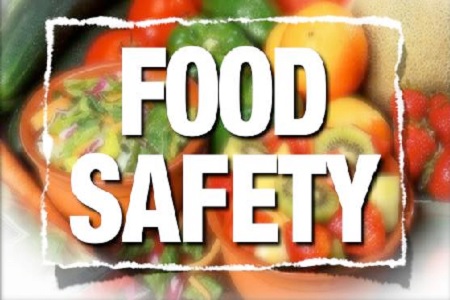FOOD SAFETY
The study of Food Safety and Sanitation is of utmost importance for the protection of the health of the consumers, you and me and the entire public or citizens.
Food Safety and Sanitation refers to food handling practices for public health. It is the practice of keeping foods from cross-contamination, storing perishable food at the appropriate temperature and heating food to a temperature that will inhibit bacterial growth.
Food safety is a scientific discipline handling preparation and storage of food in ways that prevent food borne illness. These include a number of routines that should be followed to avoid potentially severe health hazards. For a restaurant, sanitation focuses on wholesome food and beverages that are prepared and served in an environment that is free of disease-causing organisms and other harmful contaminants.
At one time or another, we may have suffered from a flu caused by a food borne illness. Most food borne illnesses contracted at restaurants go unreported because people often incorrectly assume that it is just a touch of flu, without realizing that almost everyone who ate that particular dish at the same restaurant got the same flu.
Health department inspections are incredibly important to the life and reputation of any food service operation in the food service industry. From time to time, the National Food and Drug Administration Control (NAFDAC) pay unexpected visits to various locations or factories where food service operation or production is being carried out. Sometime ago,, a team of NAFDAC staff paid and unexpected visit to a bakery and discovered that the dough for the bread was being kneaded on a very filthy table, in a very filthy environment by a group of young men who wore only trousers with no shirts on. Some of the men had open sores on their bodies and were sweating profusely. The sweat from their bodies dropped freely onto the dough they were kneading for the bread.
The NAFDAC agents subsequently sealed off the bakery immediately. In other to avoid inspection problems, onsite management and staff should treat food safety as the top priority.
Implementing good safety practices ultimately depends upon higher management which controls the amount of money available for training and equipment updates. Food safety competes for funding with many other corporate programmes.



